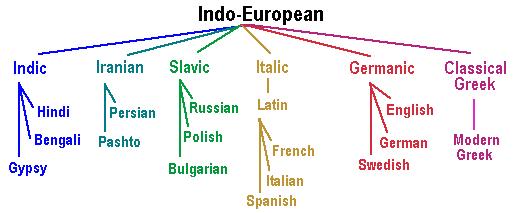(Only your etymologist knows!)
About 6,000 years ago a tribe of people living in the Eurasian Plain north of the Dnepr River in what is now the Ukraine, spoke a language from which virtually all the languages of present-day Europe and India developed. It is commonly referred to as 'Indo-European'. As the original tribe expanded, various segments of it moved farther and farther away from the central parent language, developing their own dialects. Without TV to keep everyone in contact, eventually those dialects changed so much that they became different languages.
The original language contained a word with three variants: pt-, pet-, pot-, which meant something like 'fly' or 'flow' or both (note the fl in both English words).
The forms probably corresponded to tenses such as are found in English grow : grew but that relation broke down in the dialects where they became separate words with different meanings. In the Greek dialect, the pot- variant became the word for 'river': pot-amos from the sense 'that which flows'. The English word hippopotamus is taken from the Greek (h)ippo 'horse' + pot-amos 'river' = 'horse of the river'.
In the Germanic languages, to which English belongs, the pet- variant of the same word also attracted the suffix -er, e.g. pet-er-. As the Old Germanic dialects continued to develop into the modern Germanic languages, both the pronunciation and meaning of this word changed. Jakob Grimm, the famous linguist who collected fairy tales on the side, figured out the rules by which Germanic sounds differed from those of Indo-European. According to Grimm's Law, Indo-European "p" became Germanic "f" and Indo-European "t" became Germanic "th".
p > f Greek pod (tri-pod) English foot Latin pre- (pre-dict) English fore-(fore-tell) t > th Latin pater English father I-E peter English feather Thus the pot- of hippopotamus and the feath of feather share a common origin. By the way, the suffix -er has played an interesting role in these words. This suffix derives agents (someone who does something) and instruments (the means by which something is done) from verbs, e.g. bake > bak-er (agent), slice > slic-er (instrument). Russian placed its own suffix, -ica, on the pt- stem and guess what the result was: pt-ica 'bird, one which flies'. Greek also used this vowelless form with the suffix -er : pt-er-on 'wing, the means of flying' (pter-o-dactyl = 'wing-fingered one').
Remember, the magic word is LINGUISTICS, a very new science. Etymology is the study of the historical development of words, part of historical linguistics. Check the Linguistics Program listings for what you can take next semester.
Other Sites Morphology LMBM More Fun Dictionaries Grammars

